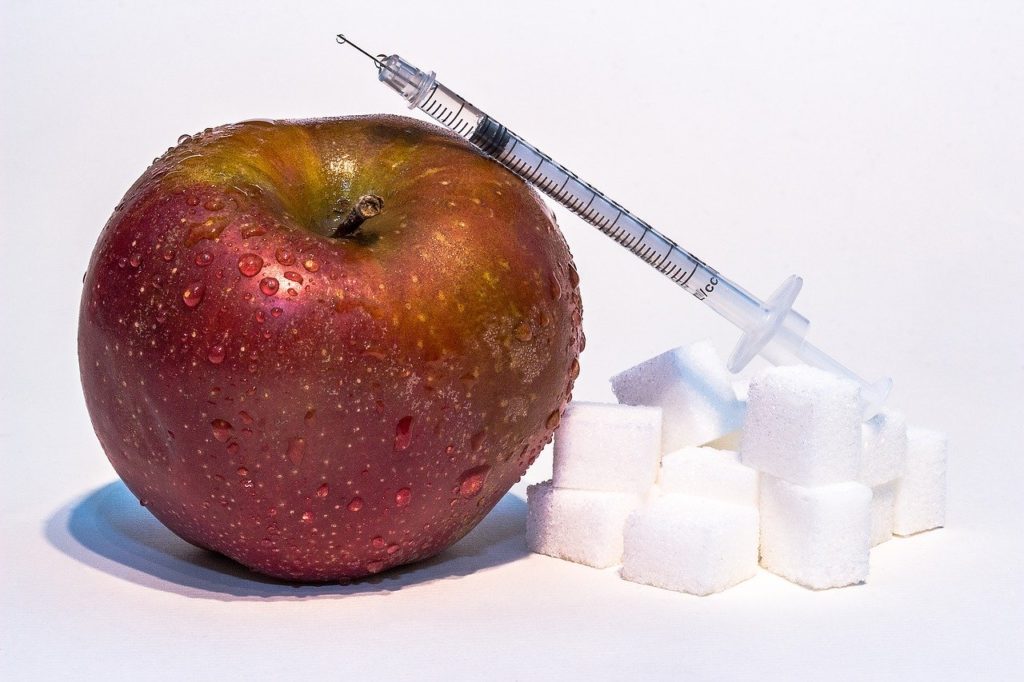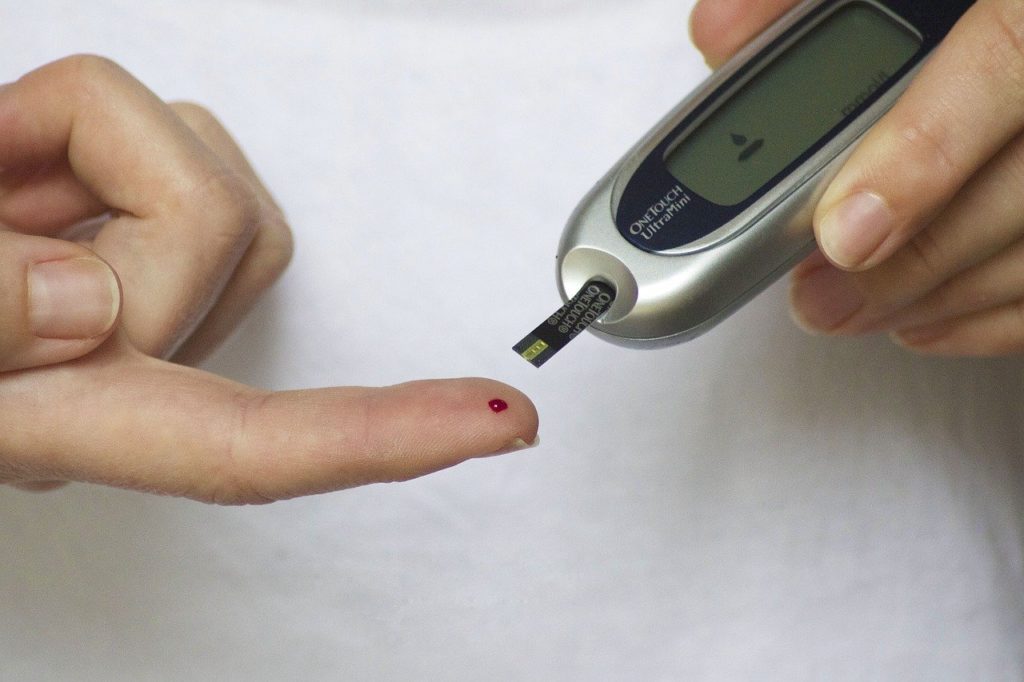CBD for Diabetes: Can It Help Manage Glucose Levels?

Reports outlining the potential of CBD to slow down the progression of type-1 diabetes are mounting. Although it should by no means be regarded as a cure, many people have successfully been using CBD for diabetes management alongside lifestyle changes. Read on to learn what this cannabinoid can do.
Diabetes is a debilitating medical condition caused by abnormally high blood sugar levels. These levels are regulated by a pancreatic hormone called insulin. Not having enough insulin (type-1 diabetes), or the hormone being ignored by the body (type-2 diabetes) causes blood sugar levels to rise and incurs diabetes type-1 or type-2, respectively.
Type-2 diabetes is catalyzed by an unhealthy lifestyle, which consists of a lack of physical activity and a diet which causes regular spikes and crashes in blood glucose levels. This nutrition involves overeating and is high in simple sugars; these processes train the body to ignore the insulin reserves it has.
Diabetes type-2 is treatable and even reversible with significant lifestyle and dietary changes, which can help the body recognize and use the available insulin. Supplementing these changes with CBD oil for diabetes can lead to additional improvement, as this cannabinoid can help curb the appetite and optimize the body’s insulin production. More on this later.
Type-1 diabetes is largely hereditary, and its cause is the inability of the pancreas to produce insulin. It commonly has a juvenile onset, and it cannot be reversed once it’s active, as the insulin deficiency can only be compensated for with insulin injections.
However, type-1 diabetes can also develop if type-2 diabetes-induced blood sugar fluctuations eventually damage the pancreas irrevocably. A healthy lifestyle and weight reduction are imperative in delaying this process. CBD may also be of help here due to its protective effects on the blood vessels and its ability to reduce weight.
The Scope of the Issue
In the US, according to 2018 CDC statistics, roughly 1 in every 3 people have diabetes or pre-diabetes; these numbers are significantly increasing by the year. The development of type-2 diabetes has been directly linked with obesity and lack of exercise, and the prevalence of obesity itself is 42.4% in US adults, according to the CDC statistics from 2017–2018.
Can You Use CBD for Diabetes Management?
CBD products are extracted from Cannabis sativa – the same plant commonly grown for its psychoactive ingredient THC. However, the strains of Cannabis sativa used for making CBD products have had THC bred out of them and contain only trace amounts of it (less than 0.3%). Due to this, using CBD for diabetes will not cause psychoactive effects.
There are three distinct ways in which CBD can be helpful in managing type-2 diabetes. However, as noted, CBD products should only be used as supplements to lifestyle changes rooted in healthy nutrition and exercise. The ultimate goal of these changes is weight loss and an active, vibrant immune system. These changes are crucial for treating diabetes, and they can even lead to its reversal.

CBD for Weight Loss
A few different cannabinoids, and especially CBD and THC, have been shown to be able to influence the feeding behavior by interacting with the endocannabinoid system, one of the key internal signalling networks with receptors throughout the body, whose malfunction has been linked to overeating and obesity.
There have been several studies conducted on rats which have provided support for the appetite-suppressing effects of CBD (1, 2, 3, 4). Researchers are mostly aligned in thinking that the interaction of CBD with the endocannabinoid receptor CB2 is behind the reduction in food intake and weight gain in the animals tested.
Anecdotal reports are also abundant, with numerous users, who have added CBD oils, tinctures, and/or edibles to their routine, seeing rapid and significant weight loss as a result (1, 2, 3, 4, 5, 6).
CBD for Pancreas Protection and Insulin Production
The endocannabinoid system has also been associated with the functioning of the β-cells in the pancreas, which are responsible for secreting insulin and regulating blood glucose levels. This system is also intricately connected with the processes of cell oxidation and inflammation, and it contributes to overall immunity with its metabolic effects and functions. Studies have shown that the oxidative stress and cell inflammation which results from it play critical roles in the development of diabetes and its many complications (such as diabetic cardiovascular dysfunction, nephropathy, retinopathy, and neuropathy).
CBD, as well as Δ9-tetrahydrocannabivarin (THCV, another cannabinoid extracted from Cannabis sativa) can potentially optimize insulin production via their indirect interaction with the endocannabinoid system. They have potent anti-inflammatory and antioxidant effects, meaning that they protect the β-cells from damage dealt by obesity. In mice, CBD has been found to delay the development of type-1 diabetes in this way. CBD was also found to protect against vascular damage caused by high glucose levels in the bloodstream.
To summarize, study results indicate that CBD can help by optimizing insulin secretion and protecting blood vessels from glucose damage, as well as delaying the effects of pancreatic damage to prevent type-1 diabetes from developing. However, once again, using CBD for diabetes is certainly not enough; strict dietary and lifestyle changes are the crucial part of reversing type-2 diabetes.
CBD as an Anti-Inflammatory Agent
Finally, recent research results have led the scientific community to a new model of understanding of the development of adult-onset diabetes. Studies have shown that cytokine levels inside the fat tissue are elevated in type-2 diabetes patients, meaning that the fat itself causes chronic inflammation which may influence the secretion of insulin and contribute to the disease.
As the diabetes starts to develop, the body becomes less sensitive to insulin and the resulting insulin resistance also leads to inflammation, creating a dangerous cycle which results in the rise of blood sugar levels and the development of type-2 diabetes. This would make the disorder inflammatory in origin.
CBD has been shown in numerous studies conducted over the course of the last several decades to have potent generalized anti-inflammatory properties. This is the basis of its analgesic effect, one of the myriad health benefits which it is commonly used for.
How to Use CBD for Diabetes
CBD products come in several different forms with its distinct means of intake. As diabetes is a chronic and profoundly internal disorder, the best way to ingest CBD is orally, because it gives the compound a chance to go through the metabolic system.
CBD for diabetes should be taken daily, in the morning, either as a tincture or in edibles (of course, sugar-free ones). The tinctures can be taken either sublingually or dissolved in a beverage. The adequate dosage range is between 15 and 45 mg, depending on body weight and specific individual chemistry.

Before adding CBD to your diet, it’s highly recommended to consult your endocrinologist.
Would you, or have you tried using CBD for diabetes management? What are your experiences?
If you haven’t, are you considering it? What are your concerns?
Please share them with us in the comments below.
